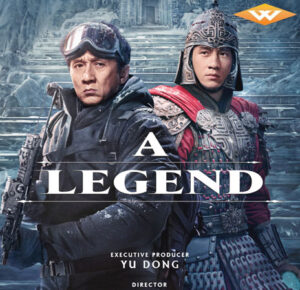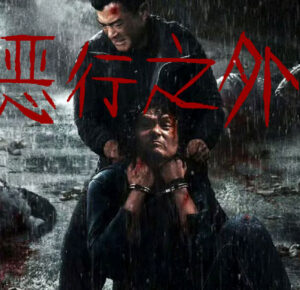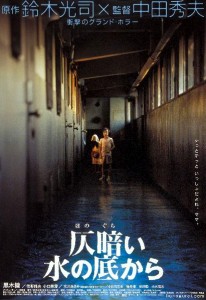
“Blood and Bone” American Theatrical Poster
Director: Ben Ramsey
Writer: Michael Andrews
Cast: Michael Jai White, Eamonn Walker, Dante Basco, Michelle Belegrin, Julian Sands, Matt Mullins, Ron Yuan, Bob Sapp, Nona Gaye, Dick Anthony Williams, Kimbo Slice, Gina Carano, Ernest “The Cat” Miller, Maurice Smith
Running Time: 93 min.
By HKFanatic
If you’re a fan of direct-to-video action movies, you may have noticed a sea change within the genre over the past few years. The straight-to-DVD shelves used to be the last resort, and ultimately the dwelling place, for stars such as Steven Seagal and Casper Van Dien. Guys like them (and Dean Cain and Gary Daniels and Christian Slater and…you get my point) could pump out a low-budget b-movie or two a year, until your local Blockbuster Video started looking like a “Where Are They Now?” special.
Then something happened. Hollywood stopped having time for the Alpha Male. Let’s face it, guys like Jason Statham and movies like “The Expendables” are a rarity – a throwback to a simpler time when men were men, not prettyboys. Hollywood’s too busy fussing over who’s the hottest, acne-cleansed new star to give us action fans what they want: old-school tough guys who would rather be in a cage fight than fuss over hair care products.
So what’s a bad-ass like Michael Jai White (“Spawn,” “Universal Soldier: The Return”) to do? Head into the direct-to-video game. It all started with 2005’s “Undisputed II: Last Man Standing,” helmed by direct-to-DVD king Isaac Florentine. That movie pitted Michael Jai White against rising star Scott Adkins and proved that you can make a DTV flick that has a decent script, good characters, and, most importantly, fight choreography that puts Hollywood studios to shame. Guys like White and Adkins are the real deal and it shows, largely because they put a hell of a lot of effort into their fight scenes.
Director Isaac Florentine and Scott Adkins would reunite in 2010 for “Undisputed III,” perhaps the finest DTV action flick ever made, but in the meantime Michael Jai White had a busy 2009 with both “Blood and Bone” and “Black Dynamite,” though the latter saw a limited theatrical release. In “Blood and Bone,” Jai White teams up with director Ben Ramsey (writer on “Dragonball: Evolution,” director of “Love and a Bullet”) and fight choreographer Fernando Chien (the ultra-buff Chinese guy in The Rock’s military crew in “Fast Five”), and even features a cameo from UFC fighter Kimbo Slice.
The plot is simple but that works in the film’s favor. Michael Jai White stars as Isaiah Bone, who’s just hit the streets with a promise to keep after being released from prison. This promise sees him fighting his way up the ranks of an underground fight ring in Los Angeles, lorded over by a gang leader played by Eamonn Walker.
White engages in plenty of jaw-dropping street fights during the film’s runtime but one criticism I’ve seen leveled at this flick is that all the fights are incredibly one-sided. That is to say: Bone dominates his opponents. Even when going up against guys who are nearly twice his size, he takes ’em out like they’re amateurs. Granted, it does makes sense considering that Bone is highly trained in martial arts while the people he fights are typically relying solely on their muscles to get them through.
The downside is that all the fight scenes are rather short as a result; there aren’t too many knock-down, drag-out brawls here. Bone is just too good – he levels everybody with a few well-placed kicks. Maybe we’ve been spoiled by all those Thai movies where the last 20 minutes are nothing but nonstop fight scenes. Regardless, the choreography in “Blood and Bone” is some of the best I’ve seen in an American-made martial arts movie. Don’t be fooled by its direct-to-DVD origins, the action in this movie is as hard-hitting as it gets. From the opening scene where Michael Jai White gets jumped in the prison bathroom by about six guys with shanks, you know this flick is gonna be hardcore.
Isaiah Bone is a stoic bad-ass; a man of few words. The role doesn’t leave much room for Michael Jai White to stretch his acting chops. Perhaps it’s not surprising then that the script seems more interested by the villain Eamonn Walker, who does deliver a great performance. He’s a crime kingpin who doesn’t drink, smoke, or use profanity, and he considers Genghis Khan a personal hero. He loves his pitbulls and is loyal to those who work for him, but he’s tired of making money off pimps and ho’s. He wants to enter the big leagues: an international fight ring run by a group of rich folks called The Consortium. Eamonn feels that Bone’s fighting talents are his ticket in; now if only the two could see eye to eye.
The script is pretty tight and focused for the genre, but there is an over-reliance on the F-bomb in place of any meaningful dialogue. The main culprit is the supporting character Pinball, played by Dante Basco. Fellow children of the 90’s will recognize Basco as Rufio from the 1990 Steven Spielberg film “Hook.” Here our boy Rufio is given such colorful dialogue as “Ladies and gentlemen, motherfuckers and motherfuckettes!” It gets a little old after awhile and I’m not sure if the role of “inner city Asian pimp/promoter” comes naturally to Basco as an actor. Hey, he is a Spielberg kid, after all.
The real highlight of “Blood and Bone” for me, and the reason why I’ve watched it more than once now, is the climax of the film which features a fight between Michael Jai White and Matt Mullins. Mullins holds five martial arts titles and starred on the American version of “Kamen Rider: Dragon Knight” (from the creators of the Power Rangers) for several seasons. He is insanely talented when it comes to karate and kickboxing. He’s tall but very lean, so watching him fight against the much larger White is a real treat.
Again, some viewers complain the fight is too short and that the second half of the match is too one-sided on Bone’s favor once again but, damn it if it isn’t one of the best fights I’ve ever seen. Mullins can kick like nobody’s business and the two of them even engage in some submission techniques for you MMA fans. If you look at their battle another way, it’s Spawn versus Kamen Rider, which makes it even cooler. Props to director Ben Ramsey for making sure the audience can actually enjoy the fight scenes – there’s no shakycam bullshit or over-editing here. We’re talking about two of the best martial artists in show business squaring off with wide camera angles to catch every move.
Michael Jai White has been around for awhile but the man seems bigger than ever, in more ways than one – I’m surprised he can find shirts that don’t rip when he moves. If you’re a fan of his, or just of good martial arts flicks in general, then you can’t go wrong with “Blood and Bone.” It’s the perfect vehicle for White as an action star and the fight scene between him and Matt Mullins cements the film’s status as a near classic. Direct-to-video doesn’t get much better than this. And hell, I’d rather pay $10 to see Michael Jai White kick ass on the big-screen over any Michael Bay movie.
HKFanatic’s Rating: 7.5/10























Be the 1st to Comment